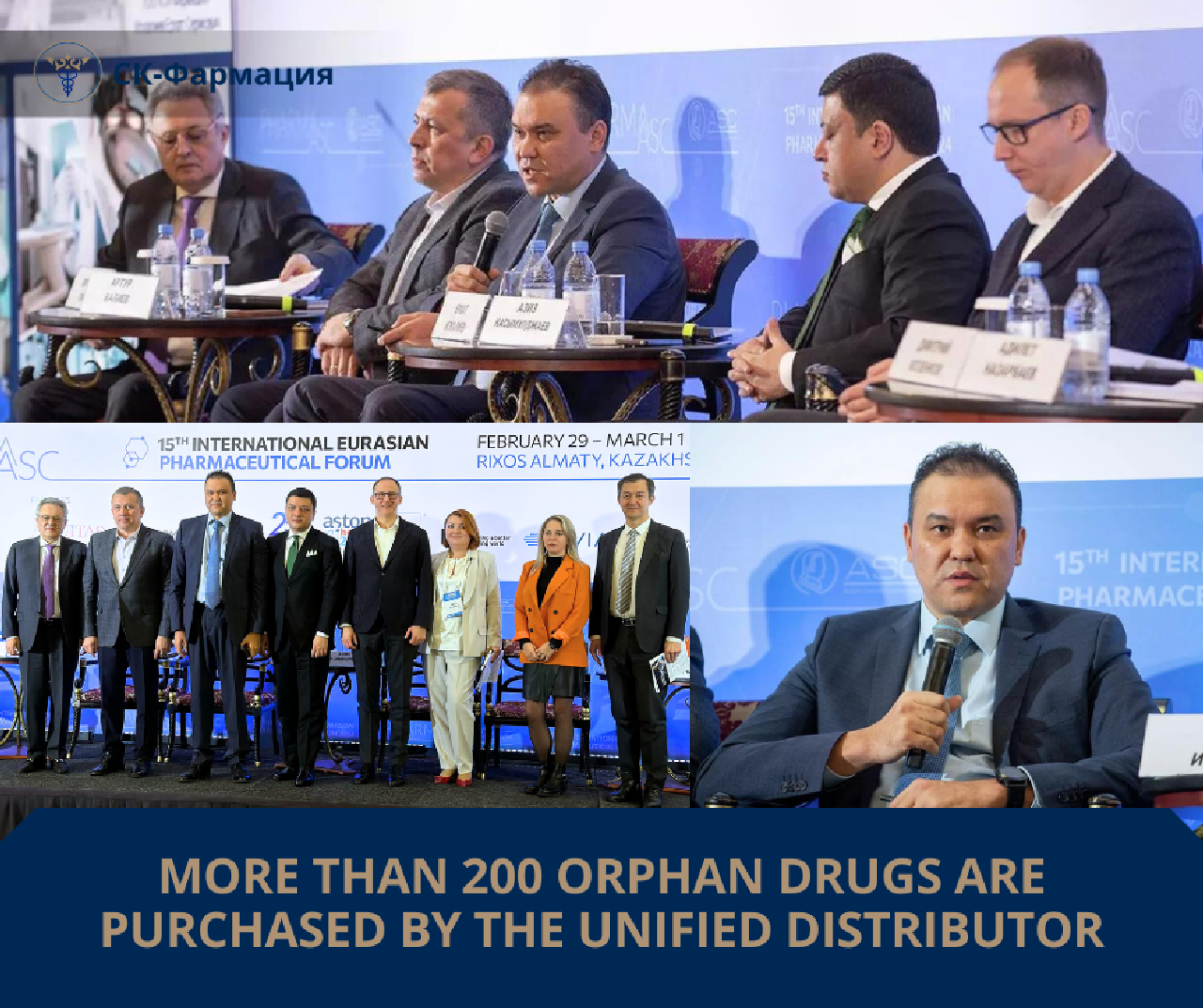
On February 29, the world celebrates International Orphan Disease Day, marking a rare date that occurs only once every four years.
Rare (orphan) diseases are life-threatening chronic diseases that have a low incidence. EURORDIS estimates that there are between 5,000 and 7,000 different rare diseases. According to Forbes, over 300 million people worldwide live with a rare disease, which is about 6% of the world's population.
In Kazakhstan, patients with orphan diseases receive specialized medical care in outpatient and inpatient settings.
For their treatment, special drugs are used, which are also called “orphan” drugs. Drug treatment of orphan diseases is expensive and time-consuming, throughout the patient’s life. These medications are often not sold in regular pharmacies.
Our state annually increases support for patients, both adults and children, with orphan diseases. To resolve the issue of free drug provision, the Ministry of Health of the Republic of Kazakhstan approved the List of orphan diseases and medications for their treatment.
Today, the List of orphan diseases in Kazakhstan consists of 66 groups of diseases. Free provision of 92 medicines for 62 orphan diseases is provided.
It is worth noting that in August 2022, the Ministry of Health of the Republic of Kazakhstan supplemented the List of free drugs with 43 names of orphan drugs for patients with epilepsy, Duchenne muscular dystrophy, cystic fibrosis (cystic fibrosis) and tuberculosis.
Thus, today the List of the Unified Distributor, taking into account dosages and dosage forms, includes 202 names of drugs for the treatment of orphan diseases.
By 2024, medical organizations in the country have declared a need for 188 types of medicines for the treatment of orphan diseases.
The share of funding for drugs for the treatment of patients with orphan diseases amounted to 30% of the total budget for outpatient drug provision, and the number of patients suffering from such diseases is less than 1% of the total number of patients receiving medecines.
If we take it on a per-patient basis, then drugs for a limited number of people place a heavy burden on the budget, which speaks of Kazakhstan as a socially oriented country that leaves no one behind.
An important fact is that funding for orphan diseases in the country has increased almost 3 times over the past five years. If in 2019 drugs for patients with rare diseases as part of outpatient provision were purchased in the amount of 30.3 billion tenge, then in 2023 this figure was equal to 90.3 billion tenge. In 2024, this amount is 72.3 billion tenge, which will increase further by the end of the year.
Centralized purchasing allows you to optimize purchase prices and consolidate the volume of demand from all regions. The saved budget is used for additional purchases, which allows increasing the coverage of patients, including those with orphan diseases, with free drugs.
Timeliness and uninterrupted supply of medicines is a priority task for the Unified Distributor. Adhering to the principle of patient-centeredness, the issue of providing patients with socially significant diseases with free medicines is under special control.